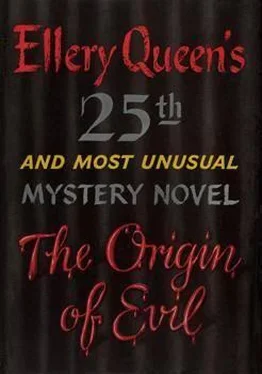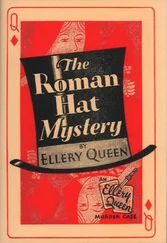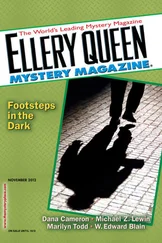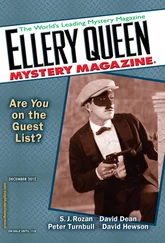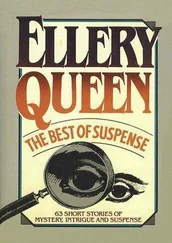“When you think of the stages of evolution,” continued Ellery, “you automatically think of Charles Darwin. Darwin was the father of the evolutionary theory. It was Darwin’s researches over a hundred years ago, his lecture before the Linnaean Society in 1858 on ‘The Theory of Evolution,’ his publication the following year of the amplification of his ‘Theory’ which he called On the Origin of Species, that opened a new continent of scientific knowledge in man’s exploration of his own development.
“So when I saw the outline of a naturalist and accordingly thought of Darwin, the greatest naturalist of all, it was a logical step to think back to Darwin’s historic voyage ― one of the world’s great voyages on perhaps science’s most famous ship ― the voyage of naturalistic exploration on which Darwin formulated his theory of the origin of species and their perpetuation by natural selection. And thinking back to that produced a really wonderful result.” Ellery gripped the back of a chair, leaning over it. “Because the ship on which Charles Darwin set sail from Plymouth, England, in 1831 on that epic voyage was named... H.M.S. Beagle.”
“Beagle.” Laurel goggled. “ The dead dog!”
“There were a number of possibilities,” Ellery nodded. “In sending Hill a beagle, the sender might have been providing the master key which was to unlock the door of the warnings to come ― beagle, Darwin’s ship, Darwin, evolution. But that seemed pretty remote. Neither Hill nor Priam was likely to know the name of the ship on which Darwin sailed more than a hundred years ago, if indeed they knew anything at all about the man who had sailed on it. Or the plotter might have been memorializing in a general way the whole basis of his plot. But this was even unlikelier. Our friend the scientifically minded enemy hasn’t wasted his time with purposeless gestures.
“There were other possibilities along the same line, but the more I puzzled over the dead beagle the more convinced I became that it was meant to refer to something specific and significant in the background of Hill, Priam, and their enemy. What could the connection have been? What simple, direct tie-up could have existed among a naturalist and two nonscientific men, and the word or concept ‘beagle,’ and something that happened about twenty-five years ago?
“Immediately a connection suggested itself, a connection that covered the premises in the simplest, most direct way. Suppose twenty-five years or so ago a naturalist, together with Hill and Priam, planned a scientific expedition. Today they would probably use a plane; twenty-five years ago they would have gone by boat. And suppose the naturalist, conscious of his profession’s debt to the great naturalist Darwin, in embarking on this expedition had the problem of naming, or the fancy to rename, the vessel on which he, Hill, and Priam were to be carried on their voyage of naturalistic exploration...
“I suggested to Lieutenant Keats,” said Ellery, “that he try to trace a small ship, probably of the coastal type, which was either built, bought, or chartered for purposes of a scientific expedition ― a ship named, or renamed, Beagle which set sail from probably an American port in 1925 or so.
“And Lieutenant Keats, with the co-operation of various police agencies of the coastal cities, succeeded in tracing such a vessel. Shall I go on, Mr. Priam?”
Ellery paused to light a fresh cigaret.
Again there was no sound but the hiss of the match and Priam’s breathing.
“Let’s take the conventional interpretation of Mr. Priam’s silence, Lieutenant,” said Ellery, blowing out the match, “and nail this thing down.”
Keats pulled a slip of paper from his pocket and came forward.
“The name of the man we want,” the detective began, “is Charles Lyell Adam. Charles Lyell Adam came from a very wealthy Vermont family. He was an only child and when his parents died he inherited all their money. But Adam wasn’t interested in money. Or, as far as we know, in women, liquor, or good times. He was educated abroad, he never married, and he kept pretty much to himself.
“He was a gentleman, a scholar, and an amateur scientist. His field was naturalism. He devoted all his time to it. He was never attached to a museum, or a university, or any scientific organization that we’ve been able to dig up. His money made it possible for him to do as he liked, and what he liked to do most was tramp about the world studying the flora and fauna of out-of-the-way places.
“His exact age,” continued Keats, after referring to his notes, “isn’t known. The Town Hall where his birth was recorded went up in smoke around 1910, and there was no baptismal record ― at least, we haven’t located one. Attempts to fix his age by questioning old residents of the Vermont town where he was born have produced conflicting testimony ― we couldn’t find any kin. We weren’t able to find anything on him in the draft records of the First World War ― he can’t be located either as a draftee or an enlisted man. Probably he got some sort of deferment, although we haven’t been able to turn up anything on this, either. About all we can be sure of is that, in the year 1925, when Adam organized an expedition bound for the Guianas, he was anywhere from twenty-seven to thirty-nine years old.
“For this expedition,” said Keats, “Adam had a special boat built, a fifty-footer equipped with an auxiliary engine and scientific apparatus of his own design. Exactly what he was after, or what he was trying to prove scientifically, no one seems to know. But in the summer of ‘25 Adam’s boat, Beagle, cleared Boston Harbor and headed down the coast.
“It stopped over in Cuba for repairs. There was a long delay. When the repairs were finished, the Beagle got under way again. And that was the last anybody saw or heard of the Beagle, or Charles Lyell Adam, or his crew. The delay ran them into hurricane weather and, after a thorough search turned up no trace of the vessel, the Beagle was presumed to have gone down with all hands.
“The crew,” said Lieutenant Keats, “consisted of two men, each about forty years old at the time, each a deepwater sailor of many years’ experience, like Adam himself. We’ve got their names ― their real names ― but we may as well keep calling them by the names they took in 1927: Leander Hill and Roger Priam.”
Keats shot the name at the bearded man in the wheelchair as if it were a tennis ball; and, like spectators at the match, they turned their heads in unison to Priam. And Priam clutched the arms of his chair, and he bit his lip until a bright drop appeared. This drop he licked; another appeared and it oozed into his beard. But he met their eyes defiantly.
“All right,” he rumbled. “So now you know it. What about it?”
It was as if he were grounded on a reef and gamely mustering his forces of survival against the winds.
“The rest,” said Ellery, squarely to Priam, “is up to you.”
“You bet it’s up to me!”
“I mean whether you tell us the truth or we try to figure it out, Mr. Priam.”
“You’re doing the figuring, Mister.”
“You still won’t talk?”
“You’re doing the talking,” said Priam.
“We don’t have much to go on, as you know very well,” said Ellery, nodding as if he had expected nothing else, “but perhaps what we have is enough. You’re here, twenty-five years later; and up to recently Leander Hill was here, too. And according to the author of the note that was left in the beagle’s collar, Charles Lyell Adam was left for dead twenty-five years ago, under circumstances which justified him ― in his own judgment, at any rate ― in using the word ‘murder,’ Mr. Priam... except that he didn’t die and he’s here.
Читать дальше
